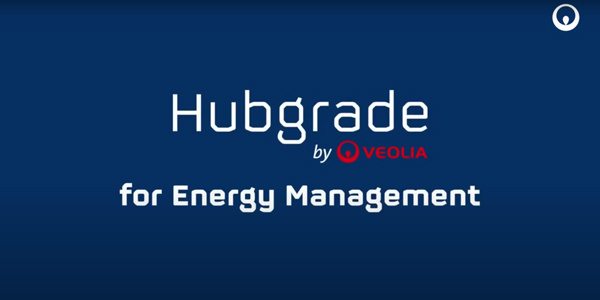Energy Markets Update
Weekly natural gas inventories
The U.S. Energy Information Administration reported last week that natural gas in storage increased by 52 Bcf. There was an injection for the same week last year of 42 Bcf while the five-year average injection is 40 Bcf. Total U.S. natural gas in storage stood at 2,923 Bcf last week, 17% less than last year and 7% lower than the five-year average for this time of year.
Natural Gas Futures Continue to Climb
Natural gas prices have shown no signs of stopping their steep climb; prices for the next 6 months are now well above $5/MMBtu as of the end of Tuesday, September 14th. The latest storage report indicates that the US has 7.4% less natural gas in storage than its five-year average. Buyer concerns are primarily focused on the outcome of this coming winter. Due to the tight fundamentals in place, a severe winter weather could deplete supply and put upward pressure on pricing that is already the highest the market has seen since 2018.
Illinois Senate passes bill to bail out nuclear plants, sets path for carbon neutral
Earlier this week, the Illinois Senate passed Senate Bill 2408, a bill containing significant legislation that will shape state energy policy for the coming decades. The bill requires the signature of Illinois Governor J.B. Pritzker to be enacted, but Gov. Pritzker has publicly supported it.
The passing of the primarily Democrat-supported bill brought major headlines, not only because it lays out a framework for the state to go carbon-free by 2050, but also because it includes nearly $700 million in public subsidies for three of the state’s ailing nuclear plants, all owned by Exelon Corporation (NASDAQ EXC). With the passing of the bill and expected approval from the Governor, the three plants will received five years in carbon mitigation credits, thus improving their profitability and incentivizing Exelon into keeping them open.
Nuclear power has notoriously high operating costs and despite its benefits as a carbon-neutral resource, nuclear plants have struggled to remain competitive in an environment dominated by natural gas and subsidized solar and wind. For a variety of reasons, lawmakers have been less reticent to extend the same clean energy subsidies to the nuclear power sector that many traditional renewable technologies have benefited from. Owners of nuclear assets have instead had to appeal to state legislatures by threat imminent closure and they’ve largely been successfully; New York, Illinois, Connecticut, New Jersey, and Ohio have all implemented various forms of nuclear bailouts. Exelon had stated plans to close their Byron plant this week unless the legislature was passed. They also stated plans to close their Dresden plant in November after failing to clear in PJM’s most recent capacity auction. While the plants have been thrown a lifeline and are expected to continue operation in the near term, they are still over 40 years old and inching towards the end of their operating lifetime, regardless of market conditions.
 Byron Nuclear Power Plant in Illinois, Source: Illinois Newsroom
Byron Nuclear Power Plant in Illinois, Source: Illinois Newsroom
The nuclear subsidies in the bill are highly controversial – Exelon is the parent company to Commonwealth Edison, which recently admitted to an explosive bribery scandal wherein the company sought beneficial rate-making rules and bailouts for its nuclear plants in 2016—also in Illinois—efforts that yielded successful results.
Despite the dubious context, proponents of the bill espouse the need to ensure that the plants stay open in order for the state to move towards a carbon neutral future. By keeping the plants open in the interim, the state will have time to build out other renewable resources to take its place – so proponents claim.
The legislation also sets a timer on coal, oil and natural gas plant operation in the state – with coal & oil plants required to shut down by 2030 and natural gas plants required to shut down by 2045.
FERC releases white paper to address changing power mix
With President Joe Biden’s push of progressive climate and clean energy goals, the Federal Energy Regulatory Commission released a staff paper on September 7 to address challenges faced by grid operators, particularly in relation to the need for reforming the nation’s energy and ancillary service markets in order to adapt for growing renewable energy resources.
The presence of variable energy sources has posed pressure on some grid operators, according to FERC staff, as some existing infrastructure and traditional services offered by operators are struggling to fulfill the demand when facing extreme weather or fast-changing energy portfolios. While the increasing need for operational flexibility and corresponding market incentives have attracted some RTOs and independent system operators to take measures (for example, NYISO and PJM have resorted to increasing shortage prices and procuring reserve capacity beyond the minimum requirement) to hedge such risks, the capacity and resource adequacy constructs are not explicitly required to be flexible. However, FERC staff also admits that such challenges are not equally faced by each region, as growth in variable energy sources is imbalanced across the country – for example, the Southwest Power Pool generated around one-third of its electricity from variable sources in the past year, while that number was less than 5% in New England. However, as the FERC projects variable energy resources to be predominant in the foreseeable future, more coordination is needed.
To better understand the needs from the market, FERC have scheduled two technical conferences (on September 14 and October 12) to hear from the public.
Natural Gas Storage Data


Market Data
Use the filters to sort by region
Market data disclaimer: Data provided in the "Market Data" section is for the newsletter recipient only, and should not be shared with outside parties.



